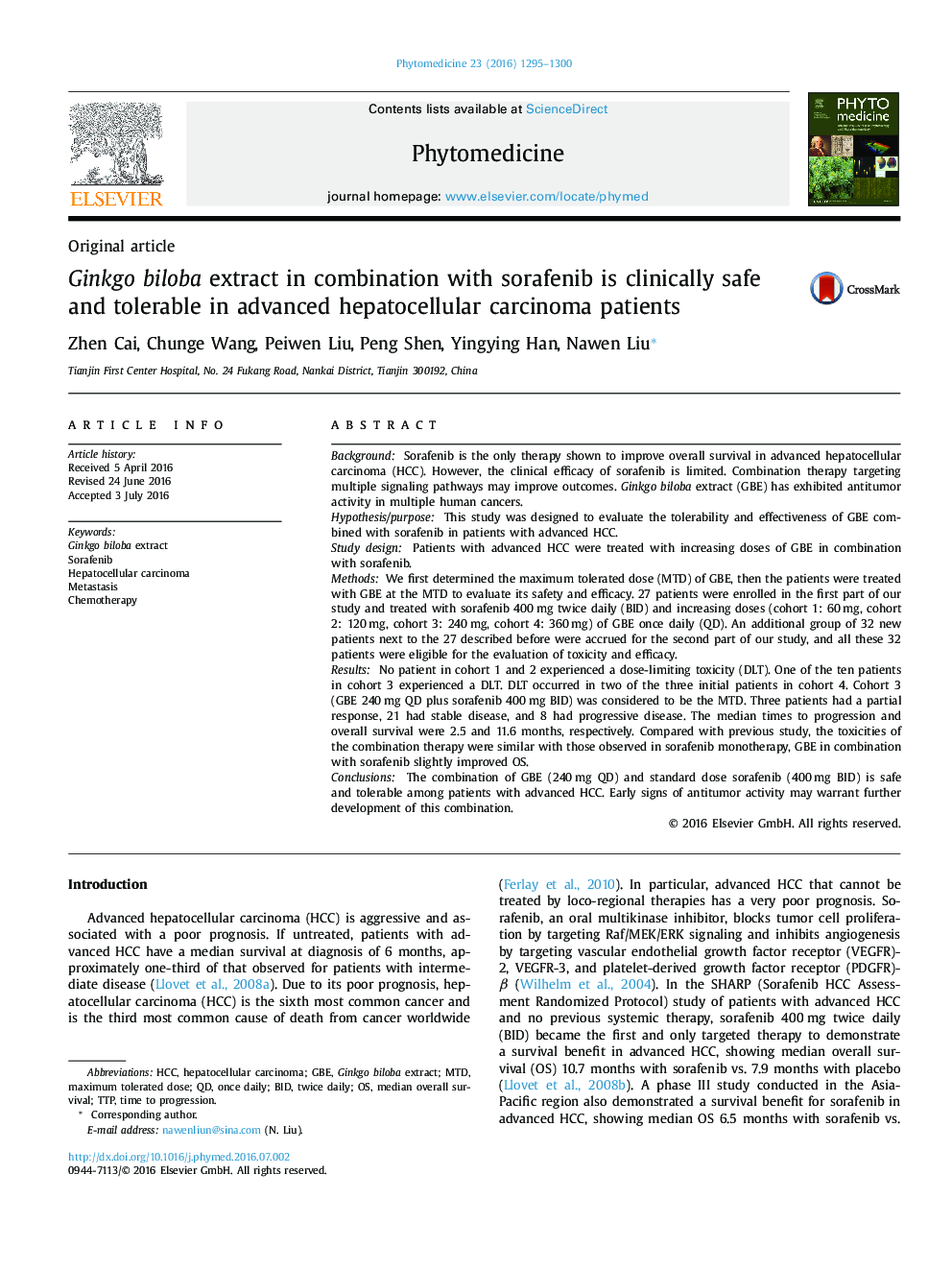| Article ID | Journal | Published Year | Pages | File Type |
|---|---|---|---|---|
| 5549380 | Phytomedicine | 2016 | 6 Pages |
BackgroundSorafenib is the only therapy shown to improve overall survival in advanced hepatocellular carcinoma (HCC). However, the clinical efficacy of sorafenib is limited. Combination therapy targeting multiple signaling pathways may improve outcomes. Ginkgo biloba extract (GBE) has exhibited antitumor activity in multiple human cancers.Hypothesis/purposeThis study was designed to evaluate the tolerability and effectiveness of GBE combined with sorafenib in patients with advanced HCC.Study designPatients with advanced HCC were treated with increasing doses of GBE in combination with sorafenib.MethodsWe first determined the maximum tolerated dose (MTD) of GBE, then the patients were treated with GBE at the MTD to evaluate its safety and efficacy. 27 patients were enrolled in the first part of our study and treated with sorafenib 400Â mg twice daily (BID) and increasing doses (cohort 1: 60Â mg, cohort 2: 120Â mg, cohort 3: 240Â mg, cohort 4: 360Â mg) of GBE once daily (QD). An additional group of 32 new patients next to the 27 described before were accrued for the second part of our study, and all these 32 patients were eligible for the evaluation of toxicity and efficacy.ResultsNo patient in cohort 1 and 2 experienced a dose-limiting toxicity (DLT). One of the ten patients in cohort 3 experienced a DLT. DLT occurred in two of the three initial patients in cohort 4. Cohort 3 (GBE 240Â mg QD plus sorafenib 400Â mg BID) was considered to be the MTD. Three patients had a partial response, 21 had stable disease, and 8 had progressive disease. The median times to progression and overall survival were 2.5 and 11.6 months, respectively. Compared with previous study, the toxicities of the combination therapy were similar with those observed in sorafenib monotherapy, GBE in combination with sorafenib slightly improved OS.ConclusionsThe combination of GBE (240Â mg QD) and standard dose sorafenib (400Â mg BID) is safe and tolerable among patients with advanced HCC. Early signs of antitumor activity may warrant further development of this combination.
Graphical abstractDownload high-res image (72KB)Download full-size image
